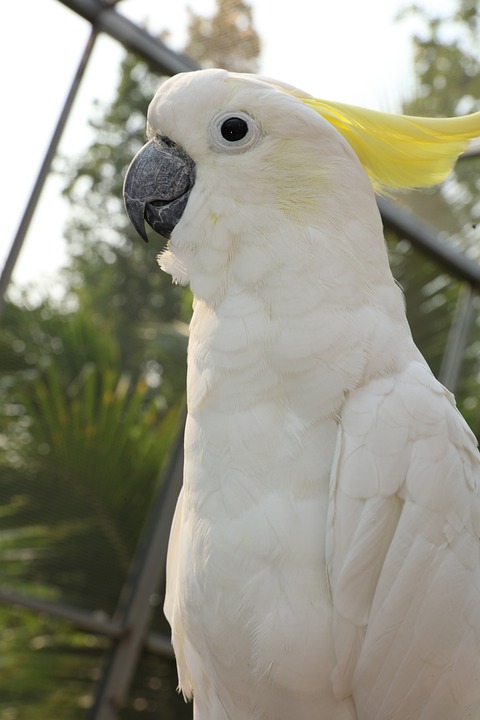Parrot training is an essential part of building a strong bond between you and your feathered friend. However, it can be disheartening when your parrot loses interest in training. In this article, we will discuss effective strategies to ensure that your parrot remains engaged and enthusiastic during training sessions. We will also address some frequently asked questions related to parrot training.
Consistency is key when it comes to training parrots. Like any other animal, parrots thrive on routine. Establishing a regular training schedule is crucial to keep them interested and motivated. Set a specific time and duration for training sessions, as parrots have a keen sense of time. By sticking to a routine, your parrot will anticipate and get excited about training.
It’s important to keep training sessions short and frequent. Parrots have short attention spans, so it’s advisable to keep sessions brief, ideally around 10-15 minutes. However, aim to train your parrot at least once or twice a day to maintain their interest.
Positive reinforcement is highly effective for parrot training. Reward-based training involves offering treats, praise, or their favorite toys to reinforce desired behaviors. This creates a positive association with training, making it more engaging for your parrot.
To prevent your parrot from losing interest, it’s essential to incorporate engaging training techniques. Clicker training is one such technique that involves using a clicker device to mark desired behaviors, followed by a reward. Parrots quickly associate the sound of the clicker with positive reinforcement, enhancing their motivation and focus during training.
Introducing variety in your training sessions is also important. Monotony can cause parrots to lose interest, so incorporate different behaviors, commands, toys, and challenges to keep your parrot mentally stimulated and eager to participate.
In addition to training, parrots require mental stimulation. Include interactive toys, puzzles, and foraging activities in their environment to keep their minds sharp. A mentally stimulated parrot is more likely to remain engaged during training.
Now, let’s address some common challenges and FAQs related to parrot training:
1. If your parrot gets easily distracted during training, try minimizing distractions in the training area by selecting a quiet and secluded space. Gradually introduce distractions as your parrot becomes more proficient in training. Increase the value of your rewards to make them more enticing than the distractions.
2. If your parrot seems uninterested in treats or rewards, experiment with different treats to find what they enjoy most. Observe if there are any specific toys or activities your parrot finds highly rewarding, and use them as motivators during training. Consider adjusting your parrot’s diet to ensure they are not satiated before training sessions.
3. If your parrot loses interest in training after a few days, take a break for a day or two to prevent burnout. Introduce new training techniques or behaviors to add novelty. Reinforce training with social interaction and playtime outside of training sessions.
4. Punishment is not recommended for parrot training as it can damage the trust and bond with your parrot. Instead, focus on positive reinforcement and redirecting unwanted behaviors to desired ones.
Remember, each parrot is unique, and training methods may need to be tailored to suit their personality and preferences. Patience, consistency, and adaptability are key to keeping your parrot engaged in their training journey. Enjoy the process of learning and growing together with your feathered companion!









